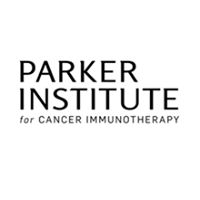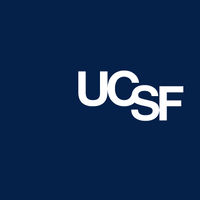预约演示
更新于:2025-05-07

The Parker Institute For Cancer Immunotherapy
更新于:2025-05-07
概览
标签
肿瘤
免疫系统疾病
血液及淋巴系统疾病
CAR-T
疾病领域得分
一眼洞穿机构专注的疾病领域
暂无数据
技术平台
公司药物应用最多的技术
暂无数据
靶点
公司最常开发的靶点
暂无数据
| 排名前五的药物类型 | 数量 |
|---|---|
| CAR-T | 2 |
| 排名前五的靶点 | 数量 |
|---|---|
| ALPPL2 | 1 |
| CD19 x CD20 | 1 |
关联
4
项与 The Parker Institute For Cancer Immunotherapy 相关的药物作用机制 CD19抑制剂 [+3] |
在研适应症 |
非在研适应症- |
最高研发阶段临床1期 |
首次获批国家/地区- |
首次获批日期- |
靶点 |
作用机制 ALPPL2抑制剂 |
在研适应症 |
非在研适应症- |
最高研发阶段临床前 |
首次获批国家/地区- |
首次获批日期- |
靶点- |
作用机制 免疫细胞毒性 [+1] |
在研机构- |
在研适应症- |
非在研适应症 |
最高研发阶段无进展 |
首次获批国家/地区- |
首次获批日期- |
11
项与 The Parker Institute For Cancer Immunotherapy 相关的临床试验NCT05478837
PNOC018 A Phase 1 Clinical Trial of Autologous T Cells Expressing a TCR Specific for H3.3K27M With Inhibition of Endogenous TCR (KIND T Cells) in HLA-A*0201-positive Participants With H3.3K27M-positive Diffuse Midline Gliomas
This phase I, first-in-human trial tests the safety, side effects, and best dose of genetically modified cells called KIND T cells after lymphodepletion (a short dose of chemotherapy) in treating patients who are HLA-A*0201-positive and have H3.3K27M-mutated diffuse midline glioma. KIND T cells are a type of treatment in which a patient's T cells (a type of immune system cell) are changed in the laboratory into KIND T cells so they will recognize certain markers found in tumor cells. Drugs such as cyclophosphamide and fludarabine are chemotherapy drugs used to decrease the number of T cells in the body to make room for KIND T cells. Giving KIND T cells after cyclophosphamide and fludarabine may be more useful against cancer compared to the usual treatment for patients with H3.3K27M-mutated diffuse midline glioma (DMG).
开始日期2023-07-20 |
申办/合作机构 |
NCT04784247
A Pilot Study of Lenvatinib Plus Pembrolizumab in Patients With Advanced Sarcoma
The purpose of this study is to find out whether combining the study drugs, lenvatinib and pembrolizumab, is a safe and effective treatment for metastatic soft tissue sarcomas that cannot be removed with surgery.
开始日期2021-03-18 |
申办/合作机构 |
NCT04119024
Phase 1 Dose Escalation Study of Systemically Administered IL13Ra2 Chimeric Antigen Receptor (CAR) T Cells After a Nonmyeloablative Conditioning Regimen in Patients With Metastatic Melanoma and Other Solid Tumors
This phase I trial studies the side effects and best dose of modified immune cells (IL13Ralpha2 CAR T cells) after a chemotherapy conditioning regimen for the treatment of patients with stage IIIC or IV melanoma or solid tumors that have spread to other places in the body (metastatic). The study agent is called IL13Ralpha2 CAR T cells. T cells are a special type of white blood cell (immune cells) that have the ability to kill tumor cells. The T cells are obtained from the patient's own blood, grown in a laboratory, and modified by adding the IL13Ralpha2 CAR gene. The IL13Ralpha2 CAR gene is inserted into T cells with a virus called a lentivirus. The lentivirus allows cells to make the IL13Ralpha2 CAR protein. This CAR has been designed to bind to a protein on the surface of tumor cells called IL13Ralpha2. This study is being done to determine the dose at which the gene-modified immune cells are safe, how long the cells stay in the body, and if the cells are able to attack the cancer.
开始日期2019-11-27 |
申办/合作机构 |
100 项与 The Parker Institute For Cancer Immunotherapy 相关的临床结果
登录后查看更多信息
0 项与 The Parker Institute For Cancer Immunotherapy 相关的专利(医药)
登录后查看更多信息
598
项与 The Parker Institute For Cancer Immunotherapy 相关的文献(医药)2025-06-02·Journal of Experimental Medicine
Tumor cell heterogeneity drives spatial organization of the intratumoral immune response
Article
作者: Adams, Zoe N. ; Lum, Lotus ; Ng, Kenneth ; Benson, Ciara ; Ledezma-Soto, Cecilia ; Reeves, Melissa Q. ; Kersten, Kelly ; Chumber, Arun ; Fong, Lawrence ; Superville, Daphne ; Combes, Alexis J. ; Hu, Kenneth H. ; Hughes, Savannah ; Samad, Bushra ; Tanaka, Miho ; Aguilar, Oscar A. ; Chaudhary, Piyush ; Krummel, Matthew F.
2025-04-21·Cancer Research
Abstract 3323: nELISA high-throughput protein profiling applied to the RADIOHEAD cohort: Insights from the largest plasma proteomics study of patients receiving checkpoint inhibitor therapy
作者: Ongo, Grant ; Lee, Andy ; Yang, Enjun ; Connolly, John E. ; Liang, Samantha I. ; Edwardson, Kiran ; Robichaud, Nathaniel ; Dagher, Milad ; Huang, JiaMin
2025-04-21·Cancer Research
Abstract 1951: Inferring immune and tissue cell type contributions to cell-free DNA (cfDNA) with a DNA methylation assay
作者: Kennedy, Drew ; Martovetsky, Gleb ; Zhu, Kimberly ; Liang, Samantha ; Mortimer, Stefanie ; Gloudemans, Michael ; Wienke, Sara ; Singer, Meromit ; Zotenko, Elena ; Sun, Min Woo ; Connolly, John ; Banh, Tam ; Selewa, Alan ; Vardi, Noam ; Tsang, Emily
144
项与 The Parker Institute For Cancer Immunotherapy 相关的新闻(医药)2025-04-30
《凉凉》I/O渐微凉 项目落地成霜你在市场观望 耗尽所有泪光不彷徨 趁早遗忘新药赛道凉 前世你怎舍下这一红海茫茫 但估值不温不火不上涨想要退场凉凉项目 为你投入成河BD出海 回报着我浅浅Me-too 临床被人抽前期投入 付东流凉凉技术 包装行业特色褪去伪装 伤情着我破山中贼易 破心中贼难折旧的心 还有几分前司的恨 还有几分前司的恨也曾受内伤 也曾因你回光悠悠研发漫长 怎能浪费时光去临床 去换成长灼灼创新忙 如今愈渐滚烫IPO已在弦上 足够三轮融资回报成双再战临床近日,美国旧金山一家新一代抗体偶联药物(ADC)公司Synthetic Design Lab,获得了2000万美元的种子轮融资。而这家公司的创始人及CEO正是肿瘤免疫领域“泰斗级”人物Daniel S. Chen博士。这一消息不禁令人唏嘘,创新药真是十年河东十年河西。 01 十年河东2013 年Daniel Chen与Ira Mellman共同提出了肿瘤免疫循环(Cancer-Immunity Cycle)的概念(图1),这个循环包括七个步骤:1. 癌细胞抗原的释放;2. 癌症抗原的呈递;3. T细胞的启动和激活;4. T细胞向肿瘤的运输;5. T细胞向肿瘤的浸润;6. T细胞对癌细胞的识别;以及7. 癌细胞的杀伤。这7个步骤可分为两个阶段:准备阶段(T细胞应答),主要发生在淋巴结(LNS);效应阶段(T细胞杀伤),主要发生在肿瘤微环境(TME)。在大多数肿瘤中,癌症免疫循环在这些步骤中的一个或多个被阻断,导致抗癌免疫反应受抑和肿瘤免疫逃逸。图1. Cancer-Immunity Cycle示意图当时,Daniel Chen是罗氏制药癌症免疫疗法开发副总裁兼全球负责人,他曾任霍华德·休斯医学研究所(HHMI)研究员,并曾负责斯坦福大学癌症中心转移性黑色素瘤的临床研究。而Ira Mellman是罗氏制药癌症免疫学副总裁、美国国家科学院院士,曾任耶鲁大学免疫学教授(图2)。图2. Daniel Chen(左)与Ira Mellman(右)十年前的2015年,Keytruda及Opdivo刚刚获批上市,而Tecentriq则刚完成临床3期并取得成功,Tecentriq的临床开发就是由Daniel Chen领导的。肿瘤免疫循环这一概念也逐渐被业内接受,甚至被大多数人奉为圭臬,这也奠定了Daniel Chen与Ira Mellman肿瘤免疫“泰斗”的地位。但随着肿瘤免疫热门靶点,如CD47、Tim3、OX40、4-1BB、CD73、TIGIT,接连在临床上折戟,肿瘤免疫也进入了低谷期。特别是曾被业内寄予厚望的TIGIT单抗临床试验(可以从罗氏临床试验命名SKYSCRAPER看出)的失败直接导致了罗氏制药裁撤了其癌症免疫部门(详见TIGIT的至暗时刻;基因泰克肿瘤免疫之殇),Daniel Chen与Ira Mellman也相继离开了罗氏制药。如今,Daniel Chen成了ADC初创公司的CEO,而Ira Mellman于近日加入了美国Parker Institute for Cancer Immunotherapy (PICI)出任研发总裁,这是一家旨在癌症治疗的科学发现与商业化之间架起桥梁,由世界领先的肿瘤免疫学专家组成的协作联盟的非盈利性质的研究所。如果在十年前,Daniel Chen从罗氏出来创业布局肿瘤免疫,融个几亿美元应该不是难事。而如今Daniel Chen创业选择了ADC赛道从一个侧面暗示:1)肿瘤免疫初创企业已经很难融到钱了;2)Daniel Chen对肿瘤免疫失去了信心;3)ADC仍是一级市场的热点。 02 十年河西2011年及2013年有两款ADC获FDA批准上市,分别是来自Seagen的Adcetris(CD30-MMAE)及Immunogen的Kadcyla(Her2-DM1),掀起了一轮ADC研发热潮(图3)。当时,几乎所有的MNC都与Seagen或Immunogen合作开发ADC药物。图3. FDA批准ADC药物时间线但很快大家发现,以微管抑制剂为Payload的ADC治疗实体瘤的失败率很高,事实上当时推上临床的大部分实体瘤ADC都失败了,比如靶向5T4的ADC(PF-06263507)、靶向EphA2的ADC(MEDI-547)、靶向Mesothelin的ADC(BAY94-9343)等等。这让很多药企很快对ADC丧失了信心,包括罗氏在内的众多MNC纷纷放弃了早期ADC管线。2015年9月,DS-8201进入临床1期试验,那时应该很少有人注意到这个分子,但历史的车轮已经开始悄悄转动。2019年12月,DS-8201在美国获批上市,适应症为Her2阳性乳腺癌。而此后,DS-8201更是一路披荆斩棘,不仅在传统适应症上对Kadcyla形成碾压优势,还开辟了乳腺癌Her2低表达甚至超低表达这些亚型的适应症。而那些具有敏锐嗅觉的中国药企在DS-8201获批上市前就已经开始了Fast follow的脚步并一跃成为ADC行业的领导者,如恒瑞、映恩生物、宜联生物、科伦博泰等等,其ADC管线产品已经成功引起MNC的关注并达成多项合作交易。谁能想到,十年前在ADC领域还默默无闻的第一三共通过消化吸收Seagen的技术结合罗氏的Herceptin及自己在TOPO1i方面的技术积累产生了DS-8201而成为了ADC行业的领导者并成功带领行业实现了跨代升级。再次感叹,创新药真是十年河东十年河西。 03 未来十年未来十年是否会出现一个新的Modality成为市场的新宠,答案是肯定的,但只是也许它还没有浮出水面。近日,阿斯利康/第一三共宣布,DS-8201联合帕妥珠单抗,在HER2阳性乳腺癌一线治疗的三期临床试验中,无进展生存期(PFS)显著优于当前一线标准治疗方案(紫杉烷+曲妥珠单抗+帕妥珠单抗,THP),总生存期(OS)也呈现出积极趋势。DS-8201联合帕妥珠单抗有望成为乳腺癌一线治疗,其市场空间也将进一步放大,甚至可能成为首个百亿美元ADC分子。与此同时,吉利德宣布其靶向Trop-2的ADC药物Trodelvy与默沙东PD-1抑制剂Keytruda联合疗法在 3 期临床试验 ASCENT-04/KEYNOTE-D19 中取得积极的顶线结果。分析显示,该试验达到主要终点,Trodelvy联合Keytruda,与Keytruda联合化疗相比,在临床上显著改善不可手术切除的局部晚期或转移性三阴性乳腺癌(mTNBC)且肿瘤表达 PD-L1(CPS≥10)的患者的无进展生存期(PFS)。未来十年,我们将看到越来越多的ADC与抗体(特别是肿瘤免疫抗体)联合治疗实体瘤进入临床试验并取得成功。我们也将看到更多跨Modality的药物联合治疗多种疾病。共建Biomedical创新生态圈!如何加入BiG会员?
临床3期免疫疗法抗体药物偶联物IPO
2025-04-11
Today, a brief rundown of news involving Amgen and the Parker Institute, as well as updates from J&J, Alzheon and Amylyx Pharmaceuticals that you may have missed.Amgens bispecific cancer antibody Imdelltra helped people with previously treated small cell lung cancer live longer than those who received chemotherapy, the company said Friday. The conclusion was made at an interim analysis of the Phase 3 DeLLphi-304 trial, which enrolled 500 people around the world and randomized half to receive Imdelltra and half to receive standard-of-care chemotherapy. Amgen didnt disclose specific data, but said treatment with Imdelltra led to a statistically significant and clinically meaningful improvement in survival. The data, if confirmed, could help it convert Imdelltras conditional U.S. approval into a full clearance. Jonathan GardnerThe Parker Institute for Cancer Immunotherapy has appointed two well-known researchers to its leadership in recent weeks. In March, the institute announced its new CEO would be Karen Knudsen, who recently served as the CEO of the American Cancer Society and its Cancer Action Network. And on Thursday the Parker Institute appointed Ira Mellman as its president of research. A Genentech veteran, Mellman played a major role in the development of new cancer medicines such as anti-TIGIT antibodies, patient-specific neo-antigen mRNA and DNA vaccines and the immunotherapy Tecentriq, which has been on the market for years. Delilah AlvaradoJohnson & Johnsons experimental autoimmune drug icotrokinra helped 84% of adolescents with psoriasis achieve clear or nearly clear skin after 16 weeks, compared with 27% of those receiving a placebo, the company said Thursday. The data came from an analysis presented at the World Congress of Pediatric Dermatology of the ICONIC-LEAD trial, which enrolled adolescents aged 12 and older along with adults to test the oral peptide drug. Icotrokinra targets IL-23, and if approved, would offer an oral alternative to injectable drugs like AbbVies Skyrizi and J&Js own Tremfya in the skin condition. J&J is developing the drug as part of a collaboration with Protagonist Therapeutics. Jonathan GardnerAlzehons experimental Alzheimers disease drug valiltramiprosate failed to delay cognitive decline in a trial of people with genetic mutations that lead to early onset of the disease, the company said Thursday. The Phase 3 trial enrolled 325 early Alzheimers patients with two copies of the 4 allele of the apolipoprotein E gene and randomized them to take valiltramiprosate or placebo. Researchers found no difference between people given the drug versus those on placebo when examining a measure called ADAS-Cog13, nor on any of the studys secondary endpoints. Trial investigators identified a nominal benefit on ADAS-Cog13 and two other measures among participants who were categorized as having mild cognitive impairment. That difference didnt meet pre-specified statistical analysis goals, however, and would likely need to be confirmed by additional trials before regulators would review valiltramiprosate. Jonathan GardnerAmylyx Pharmaceuticals on Wednesday said it dosed the first participant in a Phase 1 trial of a new treatment for ALS. The company, which previously pulled the ALS drug Relyvrio from market and switched its R&D focus, is looking again to target the neurodegenerative condition. Known as Lumina, the trial will evaluate the tolerability, safety, pharmacokinetics, and pharmacodynamics of Amylyxs new experimental drug, an antisense oligonucleotide targeting the protease calpain-2. The trial will enroll 48 individuals with ALS in the U.S. who will be randomized 3-to-1 to receive either placebo or Amylyxs drug. Early data from the trial is expected this year. Delilah Alvarado '
临床3期临床结果高管变更寡核苷酸临床1期
2025-01-17
·药事纵横
声明:因水平有限,错误不可避免,或有些信息非最及时,欢迎留言指出。本文仅作医疗健康相关药物介绍,非治疗方案推荐(若涉及);本文不构成任何投资建议。
2024年,尽管生物制药领域融资轮数从462轮减少到416轮,但融资额为260亿美元,超过了2023年的233亿美元。然而,这些资金并没有在整个行业中平均分配,从一些拥有知名领导团队的高知名度biotech获得的巨额融资就证明了这一点。如融资10亿美元的Xaira Therapeutics公司,其领导团队中包括基因泰克和强生公司的前高管。
融资额最高的biotech主要集中在人工智能或肥胖症等最受关注的治疗领域。就肥胖症而言,虽然交易数量从2023年的12笔减少到7笔,但投资总额却飙升至9亿美元,与上一年1.63亿美元的投资总额相比激增了450%。
下面,我们回顾一下2024年最热门的七轮融资事件。
1 、Xaira Therapeutics
融资轮次:种子轮
融资金额: 10亿美元
领投者: ARCH Venture Partners and Foresite Capital
4月24日,Xaira Therapeutics完成超10亿美元种子轮融资,由美国顶级生命科学投资机构ARCH Venture Partners领投,出资超过2亿。这笔投资是ARCH创始人Bob Nelsen职业生涯以来投注的最大一笔金额。
值得一提的是,Xaira公司除了有人工智能驱动的蛋白质折叠和设计先驱David Baker教授作为共同创始人之一外,前基因泰克(Genentech)首席科学官Marc Tessier-Lavigne博士也加入团队担任首席执行官。Tessier-Lavigne博士同时也是洛克菲勒和斯坦福大学的前校长。
Xaira将利用这笔资金来加强华盛顿大学医学院David Baker实验室进行的人工智能研究。该大学蛋白质设计研究所所长Baker和他的同事开发了用于蛋白质和抗体设计的RFdiffusion和 RFantibody蛋白和抗体设计模型。除了继续推动这些模型的开发外,团队还将开发新方法,将生物学靶标和工程化分子与人类的疾病体验联系起来。
2、Treeline Biosciences
融资轮次:/
融资金额: 4.217亿美元
领投者:未知
根据美国证券交易委员会10月份的一份文件,Treeline Biosciences在8月份通过向43名未知投资者发行股票筹集了4.217亿美元。该公司未公布本轮融资的更多细节。自2021年首次出现以来,该公司发布的信息很少。
自公司成立以来,创始人只发布过两次更新信息--一次是宣布公司成立,银行存款为 2.11亿美元;第二次是详细介绍了 2.61亿美元的额外融资。迄今为止,这意味着这家神秘的生物技术公司已经筹集了近9亿美元,但公开声明中只说它正在努力开发癌症和 “其他严重疾病 ”患者的治疗方法。
该公司的联合创始人是礼来(Eli Lilly)旗下 Loxo Oncology 公司的前首席执行官Josh Bilenker和诺华(Novartis)肿瘤学全球负责人Jeffrey Engelman。截至目前Treeline仍未公开过任何研发管线,但公司2023年2月以1100万美元的首付款引进了辉瑞EZH2抑制剂SHR2554的海外权益。
3、Kailera Therapeutics
融资轮次:A轮
融资金额: 4亿美元
领投者:Atlas Venture, Bain Capital Life Sciences and RTW Investments
10 月初,Kailera Therapeutics宣布成立,专注于推进下一代治疗肥胖和相关疾病的广泛疗法。该公司获得4亿美元A轮融资,由Atlas Venture(5000万美元)、Bain Capital Life Sciences(2.25亿美元)和RTW Investments(1.1亿美元)共同领投,Lyra Capital(1500万美元)参投,估值达到5.68亿美元,恒瑞股权占比19.9%和ESOP占比10%。
Kailera于2024年5月从全球领先的制药公司恒瑞医药手中收购了大中华区以外的四项代谢性疾病资产组合的全球开发和商业化独家权利。该公司有望打入快速增长的减肥治疗市场,其主要资产是一款注射用 GLP-1/GIP 受体双重激动剂,已在中国完成二期试验。此外公司还在推进三款药物的临床开发:包括临床阶段口服小分子GLP-1受体激动剂KAI-7535(HRS-7535)、每日一次口服片剂的KAI-9531和注射型GLP-1/GIP/胰高血糖素受体三激动剂KAI-4729(HRS-4729)。
、
4、Formation Bio
融资轮次:D轮
融资金额: 3.72亿美元
领投者:a16z and Sanofi
2024年6月27日,Formation Bio宣布已完成3.72亿美元的D轮融资,由a16z领投,赛诺菲大力参与,其他投资者包括红杉资本和Thrive。
本轮融资将用于收购和许可候选药物及扩展AI能力。公司致力于通过技术和AI优化药物开发过程,解决高成本和时间瓶颈,该公司旨在构建AI赋能的技术平台,加速药物开发和临床试验的各个方面,通过与生物技术和医药公司合作,引进在研疗法,并将这些项目推进到临床概念验证以及更远的开发阶段。
5、Candid Therapeutics
融资轮次:A轮
融资金额: 3.7亿美元
领投者:Venrock Healthcare Capital Partners, Fairmount, TCGX and venBio Partners
9月10日,Candid Therapeutics宣布走出隐匿模式,通过合并和融资收购了Vignette Bio和TRC 2004,囊获两款T细胞连接器(TCE)管线,并同时完成超过3.7亿美元融资,以加速推动自身免疫疾病创新疗法的开发。此次融资由Venrock Healthcare Capital Partners、Fairmount、TCGX和venBio Partners共同领投,此外还有其他多家投资者参投。
Candid公司正在开发能够清除特定B淋巴细胞群的TCE抗体,以推进这类新型疗法在自身免疫疾病领域的应用。该公司旗下的两款TCE抗体包含来自Vignette Bio的BCMA x CD3双特异性抗体CND106,以及来自TRC 2004的CD20 x CD3双特异性抗体CND261。CND106和CND261都已完成了1期剂量递增研究。该公司新闻稿指出,这两种药物均具有成为针对各种自身免疫疾病“best-in-class”疗法的潜力。
6、ArsenalBio
融资轮次:C轮
融资金额: 3.25亿美元
领投者:ARCH Venture Partners、Milky Way Investments Group、Regeneron Ventures、NVentures等
2024年9月4日,专注于实体瘤CAR-T细胞疗法的Arsenal Biosciences宣布完成超额认购的3.25亿美元C轮融资,C轮融资距ArsenalBio上一次2.2亿美元大规模融资大约间隔两年。
本轮融资包括新投资者ARCH Venture Partners、Milky Way Investments Group、Regeneron Ventures、NVentures等,以及现有投资者Parker Institute for Cancer Immunotherapy、SoftBank Vision Fund 2、Bristol Myers Squibb Company等的持续支持。
融资所得将用于推进ArsenalBio的领先项目,该公司将继续基于其专有的T细胞工程技术(包括逻辑门控)开发实体瘤癌症治疗候选药物管线。这些资金还将推动在开发识别新候选细胞疗法工具和流程方面的进一步创新,帮助ArsenalBio保持在快速发展的细胞疗法领域的最前沿,并使其更接近解决整个肿瘤学领域未满足需求的目标。
7、Metsera
融资轮次:A轮
融资金额: 2.9亿美元
领投者:ARCH Venture Partners
4月18日,Metsera公司宣布走出隐匿模式并完成2.9亿美元融资。Metsera正在推进广泛的减肥、肥胖和代谢相关疾病产品组合。本轮融资由ARCH Venture Partners领投,其他医疗保健投资者也参与其中。包括F-Prime Capital、GV、Mubadala Capital、Newpath Partners、SoftBank Vision Fund 2和其他未公开的投资者。
该公司已从一家韩国生物技术公司D&D Pharmatech获得了6种肥胖候选药物的授权,并收购了一家伦敦生物技术公司Zihipp,且计划在未来12至24个月内申请多达7项IND。
借助D&D Pharmatech和Zihipp,Metsera组成了非常丰富的治疗肥胖症的产品管线组合,其中,DD03、DD07、DD14、DD15均处于临床前阶段,DD02S正在IND申请阶段。而且,这些管线均进行了不同程度的创新,在靶点方面,它们都不再只着眼于GLP-1,而是进行多靶点的组合创新,如DD03是GLP-1/GCG/GIP三重激动剂,DD15则是GLP-1R/GIPR/GCGR 三重激动剂。此外,这些药物均以口服为主要给药方式,用于克服现阶段GLP-1注射给药的局限性。
总结
近年来,生物制药行业经历了一段艰难的时期。随着融资越来越难,该行业不可避免地经历了一波又一波的破产潮,各公司都在努力适应更加严峻的金融环境。不过,与 2023年相比,2024年生物技术行业出现了复苏迹象,并购活动增多,首次公开募股活动也明显增加。
安永会计师事务所美洲生命科学部门主管Arda Ural认为,由于利率降低和新政府可能鼓励并购活动的增加,这种复苏可能会持续到2025年,特别是由于即将出现的专利悬崖使得该行业中一些最大的公司有必要更新产品线。
参考资料:
[1]https://www.biospace.com/
[2]各公司公告
高管变更
100 项与 The Parker Institute For Cancer Immunotherapy 相关的药物交易
登录后查看更多信息
100 项与 The Parker Institute For Cancer Immunotherapy 相关的转化医学
登录后查看更多信息
组织架构
使用我们的机构树数据加速您的研究。
登录
或

管线布局
2025年07月19日管线快照
管线布局中药物为当前组织机构及其子机构作为药物机构进行统计,早期临床1期并入临床1期,临床1/2期并入临床2期,临床2/3期并入临床3期
临床前
1
1
临床1期
其他
2
登录后查看更多信息
药物交易
使用我们的药物交易数据加速您的研究。
登录
或

转化医学
使用我们的转化医学数据加速您的研究。
登录
或

营收
使用 Synapse 探索超过 36 万个组织的财务状况。
登录
或

科研基金(NIH)
访问超过 200 万项资助和基金信息,以提升您的研究之旅。
登录
或

投资
深入了解从初创企业到成熟企业的最新公司投资动态。
登录
或

融资
发掘融资趋势以验证和推进您的投资机会。
登录
或

Eureka LS:
全新生物医药AI Agent 覆盖科研全链路,让突破性发现快人一步
立即开始免费试用!
智慧芽新药情报库是智慧芽专为生命科学人士构建的基于AI的创新药情报平台,助您全方位提升您的研发与决策效率。
立即开始数据试用!
智慧芽新药库数据也通过智慧芽数据服务平台,以API或者数据包形式对外开放,助您更加充分利用智慧芽新药情报信息。
生物序列数据库
生物药研发创新
免费使用
化学结构数据库
小分子化药研发创新
免费使用


